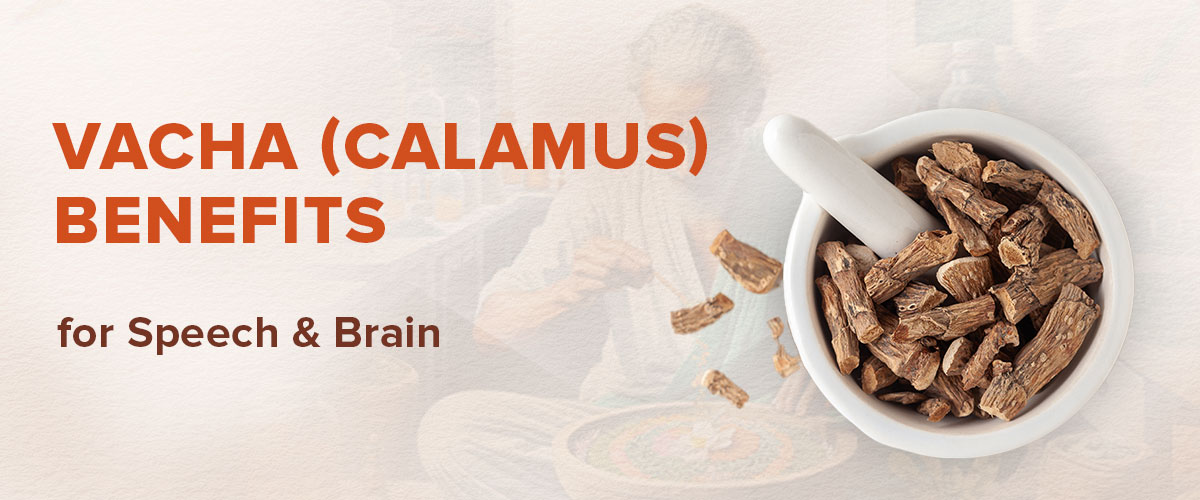Amla (Indian Gooseberry): Benefits, Uses, and Healing Properties

Amla or Indian Gooseberry is among the strongest healing fruits used in Ayurveda. Its botanical name is Phyllanthus emblica and in Sanskrit it's called Amlaki (meaning 'rejuvenating herb' in Ayurveda). In traditional use, amla has been used as a rasayana (tonic for life expectancy, vitality and immunity). It is valued because it helps to balance all three doshas, and thus is considered to be appropriate for almost everybody.
Amla is just as relevant today. You'll find it in health supplements, hair oils, skincare and even contemporary medical research. For instance, a systematic review of human trials reported an average decrease of approximately 15 mg/dL in LDL cholesterol of adults taking amla versus placebo. This demonstrates how potent its antioxidant and heart-supporting activities are.
In this blog, let us explore more about amla benefits for your overall health, how you can use it in daily life and how it can improve your hair, skin and overall wellbeing.
What is Amla & its Ayurvedic Properties?
Amla or Indian Gooseberry is a small green fruit used in Ayurveda. Ayurveda describes every food or herb as per its taste, quality, potency and behaviour following digestion. These factors explain the way the herb works inside your body and what benefits you can expect.
Taste (Rasa)
Amla has a distinctive taste combination. It's generally sour but it has sweet, bitter, pungent and astringent notes. In fact, it has five of six Ayurvedic tastes. This explains exactly why you get that sharp sourness when you bite into raw amla and then this somewhat sweet and drying after-feel. Due to this uncommon mixture of tastes, amla can help balance Vata, Kapha and Pitta. If you suffer from acidity, inflammation, slow digestion or low immunity, amla can help you naturally due to its taste profile.
Qualities (Guna)
Amla is described as dry and light. What this means is you do not feel sluggish or heavy after eating it. Instead, it feels refreshing and clean. For you this means much better digestion, less gas and a faster metabolism. These qualities also make amla helpful in case you often struggle with excess mucus, slow digestion or fatigue.
Potency (Virya)
Amla is a cooling herb. This cools internal heat, irritation and inflammation. In case you experience acidity, burning sensations, overheating in summers or stress-related heating in the body, amla could be calming for you. Its cooling action also helps with healthy hair and skin.
Post-Digestive Effect (Vipaka)
Amla has a sweet post-digestive effect following digestion. This sweet vipaka provides nourishment for your tissues, strength and supports long-term wellness. For you, it means better immunity and better digestion.
What are the Health Benefits of Amla?
Amla is among those unusual fruits which help with almost everything in your health. When viewed from both Ayurveda and contemporary science perspective, you can clearly see the reason why it's valued highly. Here are some significant Amla benefits for health:
1. Amla Boosts Immunity
Ayurvedic View:
Amla is a rasayana (strength, energy and defense against illness). Ayurveda says amla cools the body, balances all 3 doshas and also clears the toxins which weaken immunity. Maintaining your doshas balanced helps your body become more resistant to infections.
Modern View:
Amla is loaded with Vitamin C and antioxidants. These nutrients battle germs, reduce inflammation and support your natural defenses. When you do get ill, you can recover quicker with frequent intake of Amla.
2. Amla Helps Digest Food
Ayurvedic View:
Amla helps improve your digestive fire. Its sour flavor encourages digestion and its cooling property prevents acidity. Ayurveda suggests amla for gas, bloating or sluggish digestion as it purifies the stomach naturally.
Modern View:
Contemporary research notes its high fiber content. Fiber helps with bowel movements, decreases constipation and also keeps your gut healthy. Amla also helps absorb more nutrients, so you receive more benefit from your food.
3. Amla Supports Weight Loss
Ayurvedic View:
Ayurveda says amla clears excess toxins, increases metabolism and curbs cravings. When your digestion is more powerful and your metabolism functions better, weight loss comes easily.
Modern View:
Modern nutrition studies suggest that amla aids in fat-burning, glucose regulation and cholesterol lowering. It keeps you full more which means you snack less and avoid eating too much.
4. Amla Protects The Heart
Ayurvedic View:
Ayurveda considers amla a vital heart-supporting herb, since it cools the body and also decreases internal inflammation. Strong digestion and balanced doshas are essential for heart health which amla encourages.
Modern View:
Contemporary clinical studies show amla reduces bad cholesterol (LDL). Even in clinical trials, adults taking amla saw a decrease in LDL compared to placebo. Lower cholesterol means better heart protection.
5. Amla Health Benefits for Skin
Ayurvedic View:
Healthy digestion and balanced Pitta result in clearer skin and amla supports both. It cools inflammatory conditions, cleanses the blood and can make your skin appear more vibrant, smoother and healthier.
Modern View:
Amla is full of Vitamin C that stimulates collagen creation, dark areas reduction and elasticity of skin. This explains the reasons you find amla in most skincare serums, masks and lotions.
6. Amla Benefits for Hair
Ayurvedic View:
Amla nourishes your scalp and strengthens your hair roots. It cools the scalp that's related to hair fall, dandruff and early greying.
Modern View:
Amla has antioxidants and nutrients which stop your hair from greying, encourage thicker growth and keep your scalp healthy. That is the reason it is a primary component of hair oils, hair packs and shampoos.
Amla for Specific Health Conditions
Amla is more than just a healthy fruit. Additionally, it supports several certain health issues that you might need natural, long-term help for. These are conditions where amla could be useful.
Amla for High Blood Sugar
In case you experience high blood sugar levels frequently, amla could be a good companion. Ayurveda says amla helps with toxins, metabolism, and digestion to keep a healthy sugar balance within your body. Its cooling effect also calms Pitta, a mediator of metabolic stress.
Contemporary findings say that amla improves insulin sensitivity and also helps your body use sugar better. It is low on the glycemic index so it will not result in dramatic rises in your blood glucose. Taking it frequently could help you keep stable readings during the day.
Amla for Heartburn and Acidity
Amla is among the best home remedies for acidity. Ayurveda says that its cooling properties settle extra heat inside your stomach, which causes discomfort and burning. You might feel relief with daily use.
Contemporary studies suggest that amla neutralises stomach acids and supports a healthy gastrointestinal lining. This decreases irritation and helps avoid frequent acid reflux episodes.
Amla for Gut Cleansing and Constipation
If you experience constipation or a heavy, sluggish gut frequently, amla can be helpful. Its light and purifying properties remove waste without forcing your system.
In contemporary application, amla's high fiber content softens stool and also supports regular bowel movements. Additionally, it provides nourishment for good gut bacteria so your digestion functions easier.
Amla for Eye Health
Ayurveda associates amla with good eye health due to its cooling effect and nourishment of eye tissues. When Pitta is high, eyes might feel strained, dry or irritated and amla balances this.
Contemporary research indicates that Vitamin C and antioxidants in amla protect the eyes from oxidative stress and support great vision.
Amla for Liver Support
Ayurveda considers amla a natural detoxifier which cleanses the liver and also encourages faster metabolism. A balanced liver means better digestion, much more energy and fewer toxin problems.
Contemporary studies demonstrate that antioxidants in amla promote better liver function by reducing inflammation and preventing liver cellular damage.
Who Should Use Amla?
Amla is among those fruits which individuals of nearly every age can reap the benefits of. These are the various groups that might benefit from it.
Amla for Women
As a woman experiencing stress, hair fall, dull skin or low energy, amla could be an easy yet powerful supplement to your everyday life. As per Ayurveda, amla balances Pitta and strengthens your tissues supporting healthy skin, digestion and natural rejuvenation. Many women also report that amla eases fatigue and encourages better hormonal balance.
Amla for Kids
Amla can be helpful for kids who have colds frequently or lack appetite. In Ayurveda, amla is known to improve digestion and also strengthen immunity that help kids become healthier and remain better during seasonal changes.
Amla for Older Adults
In case you're a senior or caring for one, amla can offer solid support for everyday wellness. As per Ayurveda, amla slows the natural process of aging, strengthens bones, improves digestion and makes the mind quieter.
Contemporary analysis reveals that amla reduces cholesterol, protects the heart and also supports much better blood sugar control. Its antioxidants also protect your joints and brain from ageing. For older adults who want energy, clear digestion and vitality, amla is among the safest herbs to take regularly.
Can Amla Be Taken with Other Medicines?
Amla is usually safe for most people but be cautious if you use contemporary medications. Amla impacts digestion, blood sugar and cholesterol, so make sure it doesn't interfere with any treatment you're already on.
In case you take diabetes medicines, amla might reduce your blood sugar further because it induces insulin sensitivity. You may have to track your sugar more closely to avoid it from going very low.
Also, be aware if you take blood-thinning medications. Amla has blood-cleansing and antioxidant properties; which could alter how these medicines work.
If you have acid reflux or stomach sensitivity, amla is cooling but also sour. Many people tolerate it well, but begin with a small quantity in case your stomach is extremely sensitive.
If you take long-term prescription medication for autoimmune diseases, heart, or thyroid, it is always better to inform your Jiva doctor before starting any herb such as amla.
Is Amla Safe? Who Should Avoid It?
Amla is among the safest herbs in Ayurveda and nearly all people use it daily without any issues. It is an all natural fruit so side effects are uncommon. But like every powerful remedy, it isn't right for each person.
The most common unwanted side effects of amla are :
- Mild stomach discomfort.
- More acidity in extremely sensitive stomachs.
- Loose stools.
- Drop in blood sugar.
- Dryness when your skin is extremely sensitive or dry..
In case you're pregnant, breastfeeding or taking medications for heart problems, consult an Ayurvedic expert before daily amla usage. They can assist you to select the best dose and form for your body.
If you encounter any of these problems like stomach pain, gastrointestinal upsets, dizziness or stronger reactions after amla usage, stop using it for some time. Always be careful and get guidance from a Jiva doctor before starting any new herbal treatment.
Amla vs Other Ayurvedic Herbs
Like Amla, there are other potent Ayurvedic herbs that have proven to be useful for different health issues. Below are comparison tables to help you understand how amla differs from other commonly used Ayurvedic herbs. Each table highlights the herb’s nature, best uses and overall effect on your mind and body, so you can choose what suits your needs best.
Amla vs Triphala
|
Feature |
Amla |
|
|
Nature |
Cooling |
Mildly warming but generally balancing |
|
Best Use |
Immunity, skin glow, hair health, cholesterol support |
Constipation, gut cleansing, long-term digestive strength |
|
Effect on Mind |
Calms irritation and reduces heat-related stress |
Keeps the mind light by improving gut health |
|
Effect on Body |
Nourishes tissues, cools inflammation, boosts strength |
Detoxifies, supports regular bowel movements |
|
Suitability |
Good for acidity, heat issues, weak immunity |
Good for sluggish digestion and toxin buildup |
Amla vs Ashwagandha
|
Feature |
Amla |
|
|
Nature |
Cooling |
Warming |
|
Best Use |
Skin, hair, digestion, immunity, cholesterol |
Stress relief, energy, strength, sleep support |
|
Effect on Mind |
Soothes and cools emotional heat |
Calms the mind, reduces anxiety and supports better sleep |
|
Effect on Body |
Cleanses and rejuvenates tissues |
Builds muscle, improves stamina, balances stress hormones |
|
Suitability |
Great when you feel overheated or inflamed |
Great when you feel tired, weak or stressed |
Amla vs Neem
|
Feature |
Amla |
|
|
Nature |
Cooling and nourishing |
Strongly cooling and cleansing |
|
Best Use |
Hair health, skin glow, immunity, digestion |
Skin infections, acne, blood purification |
|
Effect on Mind |
Gentle cooling that improves clarity |
Deep cleansing, good for heat-related skin irritation |
|
Effect on Body |
Strengthens tissues and supports long-term wellness |
Removes toxins, dries excess oil, fights infections |
|
Suitability |
Daily wellness support |
More suitable for short-term use for skin or infection issues |
Conclusion
Amla shows you how powerful a simple fruit could be, based on not only ancient wisdom, but also contemporary scientific backing. So, whether you want better and dense hair, healthier skin, stronger immunity, or better digestion, this small green fruit provides your body natural help without causing side-effects. However, even the best Ayurvedic herbs perform differently for everyone based upon their age, health problems and everyday lifestyle. That is why the correct form, the right dosage and the right timing are very essential.
Herbs like amla are even more potent and safe once you receive expert guidance. If you are struggling with any health problem, or simply wish to use amla the right way, speak with a Jiva-certified doctor.
Call our Jiva experts today on 0129-4264323 for personalised advice on any health concern.
FAQs
- What is Amla good for?
Amla helps in boosting immunity, digestion, skin and hair health & keeping cholesterol down. It gives natural nourishment for your body without making you feel heavy.
- How can you take amla for best results?
Take it fresh as fruit, juice, candy, powder or in hair and skin packs. Start small with the form that best suits your digestion and everyday routine.
- What are the medicinal uses of Indian gooseberry?
Indian gooseberry is used to cool inflammatory conditions, purify blood, help digestion and strengthen immunity. It's considered a rasayana in Ayurveda for keeping you youthful and in good health.
- What will happen if I eat amla daily?
Eating amla every day could give you a radiant skin, reduce hair fall, improve digestion and also immunity. Many people also feel lighter and more energetic and less susceptible to seasonal diseases with daily Amla intake.
- Can Amla reverse greying of hair?
Amla can slow down premature greying of hair as it nourishes your scalp and cools down body heat. It can support healthier, stronger and darker hair with time.



 Prev
Prev




























